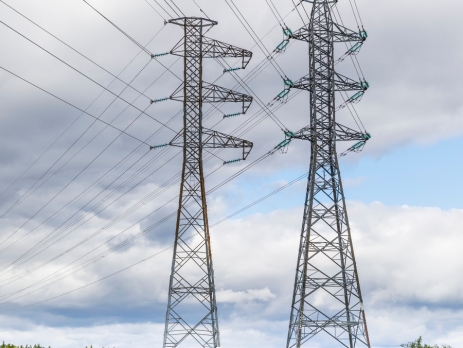Aims
The introduction of the “New Code” in December 2017 was intended to reform and update telecommunications legislation and the “Old Code”, once generously described as “one of the least coherent and thought-through pieces of legislation on the statute book”.
The consultation recognises that “updates may be needed if the aim and ambition of the 2017 reforms is to be realised fully”. The aims remain noble, but reforms are suggested to overcome some of the confusion and perceived hurdles which persist. Balancing the “need for digital infrastructure with the rights and interests of landowners and other site providers” is a recurring theme and this remains the biggest challenge to overcome.
The Issues
The Consultation identifies three main problems areas:
- “Issues relating to obtaining and using Code agreements”
- “Rights to upgrade and share”
- “Difficulties relating to the renewal of expired agreements”
The Proposals
The consultation runs to 71 pages and should be reviewed fully by interested stakeholders. Many of the proposals are at their early stages and details are scant, but some are of particular interest:
- A new complaints process for alleged non-compliance with the Ofcom Code of Practice
- An “Alternative Dispute Resolution” scheme
- “Fast-track court procedures”
- An “alternative procedure” for obtaining Code rights from unresponsive landowners
- Changes to the Code regarding renewals on existing sites following the Compton Beauchamp and subsequent decisions (with emphasis on sites where the “occupier” is the operator)
- Retrospective automatic sharing and upgrading rights for sites where apparatus was installed under “Old Code” agreements (in the same terms as Paragraph 17 of the New Code, or through imposing a stricter standalone regime)
- Amendments to the Code to give clarity on what is actually possible under paragraph 17 sharing/upgrading rights
- The application of Part 5 renewal processes to “all cases” as a means of clarifying confusion over certain renewals of existing agreements
- The imposition of the “six-month rule” to all disputes relating to the New Code, including renewals and terminations
- An exploration of “alternative ways that compliance with terms of Code agreements might be encouraged or that could provide fast and accessible remedies where problems arise”.
Response
Consultees are invited to respond to a list of specific questions by 24 March 2021. Replies can be submitted by e-mail to code-consultation@dcms.gov.uk, along with any additional material.
Commentary
The proposals vary – some merely invite suggestions whereas some would involve fundamental changes. They raise a host of questions and practical difficulties which will no doubt be debated in further consultation, for example:
- How will the court system cope with a blanket six-month rule for all Code disputes?
- Will Part 5 extend to subsisting agreements falling within the Landlord and Tenant Act 1954?
- How will retrospective automatic sharing/upgrading rights intervene with freely negotiated agreements which involve “payaways” and specific restrictions?
- Will ADR options and complaints procedures have teeth, and will they be any quicker than litigation in the context of a blanket six-month rule?
- Will the parties be compelled to partake in ADR in certain circumstances or will it be entirely voluntary?
- Is further clarity on Paragraph 17 required, in light of recent Tribunal guidance?
- To what extent will previous decisions and upcoming appeals remain relevant following the potential imposition of these proposals?
The commentary surrounding the proposals gives some insight into the Government’s approach – they are keen to stress the primary purpose of reform is to give clarity and realise the Code’s objectives more efficiently, whilst maintaining a balance of interests. Some proposals will still raise eyebrows with the landowner community. Freely negotiated contracts may find themselves open to retrospective statutory intervention.
One would also be forgiven for questioning whether changes to the Code will create a “second wave” of litigation if an additional layer of uncertainty is introduced.
The Government has ambitious targets – a minimum of 85% gigabit-capable coverage by 2025 and 5G coverage to be enjoyed by the majority of the UK population by 2027.
Alternative dispute resolution procedures and clarity on Code provisions may be helpful in setting the framework for negotiations and dispute resolution, but they are unlikely to get to the heart of what is preventing many agreements from completing. The key to unlocking this potential is best summarised in paragraph 1.17:
“Any subsequent changes to the Code will be focused on supporting our digital networks and ensuring that the aims of the 2017 reforms are realised. We do not propose to look at the wider structure and function of the Code. The Government is clear that the best, most efficient, most cost-effective means for operators to access land is via a negotiated agreement with the owner of that land.”
https://assets.publishing.service.gov.uk/government/uploads/system/uploads/attachment_data/file/955957/ECC_consultation_27_January_2021.pdf
Schedule 3A Communications Act 2003, as amended by the Digital Economy Act 2017
Cornerstone Telecommunications Infrastructure Ltd v Compton Beauchamp Estates Ltd [2019] EWCA Civ 175
See, for example, CTIL v University of the Arts London [2020[ UKUT 248 (LC) and CTIL v London & Quadrant Housing Trust [2020] UKUT 282 (LC)



